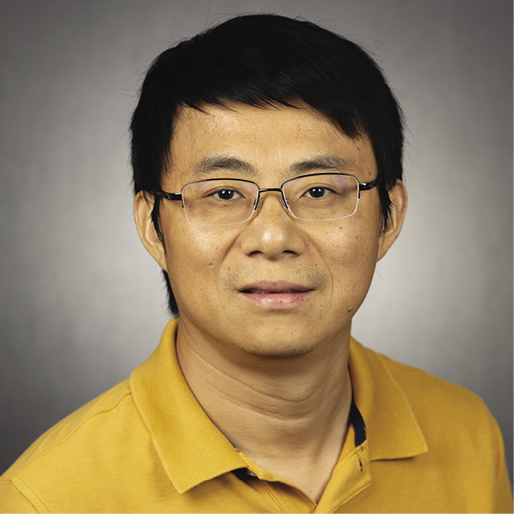Zhifeng Gao, Ph.D.
Professor of Food and Resource Economics
Institute of Food and Agricultural Sciences
2023 Awardee
Zhifeng Gao is a consumer-behavior economist with a focus on food. By using applied economic policy analysis, he hopes to improve the sustainability of the food system to benefit society.
“The food system is an integrated system that can enhance the well-being of the environment, economy and society,” Gao said.
Some recent topics covered in his recently published work include consumer perceptions of eco-labeling on food, perception shifts in United States seafood consumption, and consumer preference for eco-friendly egg packaging.
“My research particularly enhances the understanding of consumer attitudes and preferences for food attributes, assesses the economic feasibility of sustainable production technologies, and estimates growers’ adoption of sustainable technologies,” Gao said.
Insights into consumer behavior give stakeholders, legislators and industry members information needed to develop policies and strategies that encourage the consumption and production of high-quality and sustainable food products.
“A sustainable food system is consumer-driven, as individual lifestyles, consumption habits and food preferences profoundly influence the amounts, types and ways that food is produced,” Gao said.
Gao recognizes the rising relevance of artificial intelligence across all industry sectors and has plans to incorporate it into his research.
“My future research will use advanced technology such as machine learning and AI to identify barriers and motives for sustainable food consumption and production,” Gao said.
Gao has authored or co-authored 58 refereed publications and numerous scholarly presentations at national and international levels in the last five years. He has a career total of 100 articles. He has contributed to grants totaling $20 million in extramural funding, with over $14 million in the last five years, which includes grants from USDA-NIFA, USDA-SARE, USDA-SCRI, as well as state agencies. RePEc, a worldwide service evaluating economists’ research, ranks Gao in the top 2% based on the number of distinct publications.
By continuing to develop a systematic approach to analyzing the impact of policy regulations on behaviors observed along the market chain and integrating these new technologies, Gao hopes to increase understanding of all the impacts that contribute to decisions made in the food supply chain that would lead to greater sustainability.
“The systematic approach would integrate the social networking effect among consumers, producers, players in the food supply chain, and human-nature interactions to promote a sustainable food system,” Gao said.


